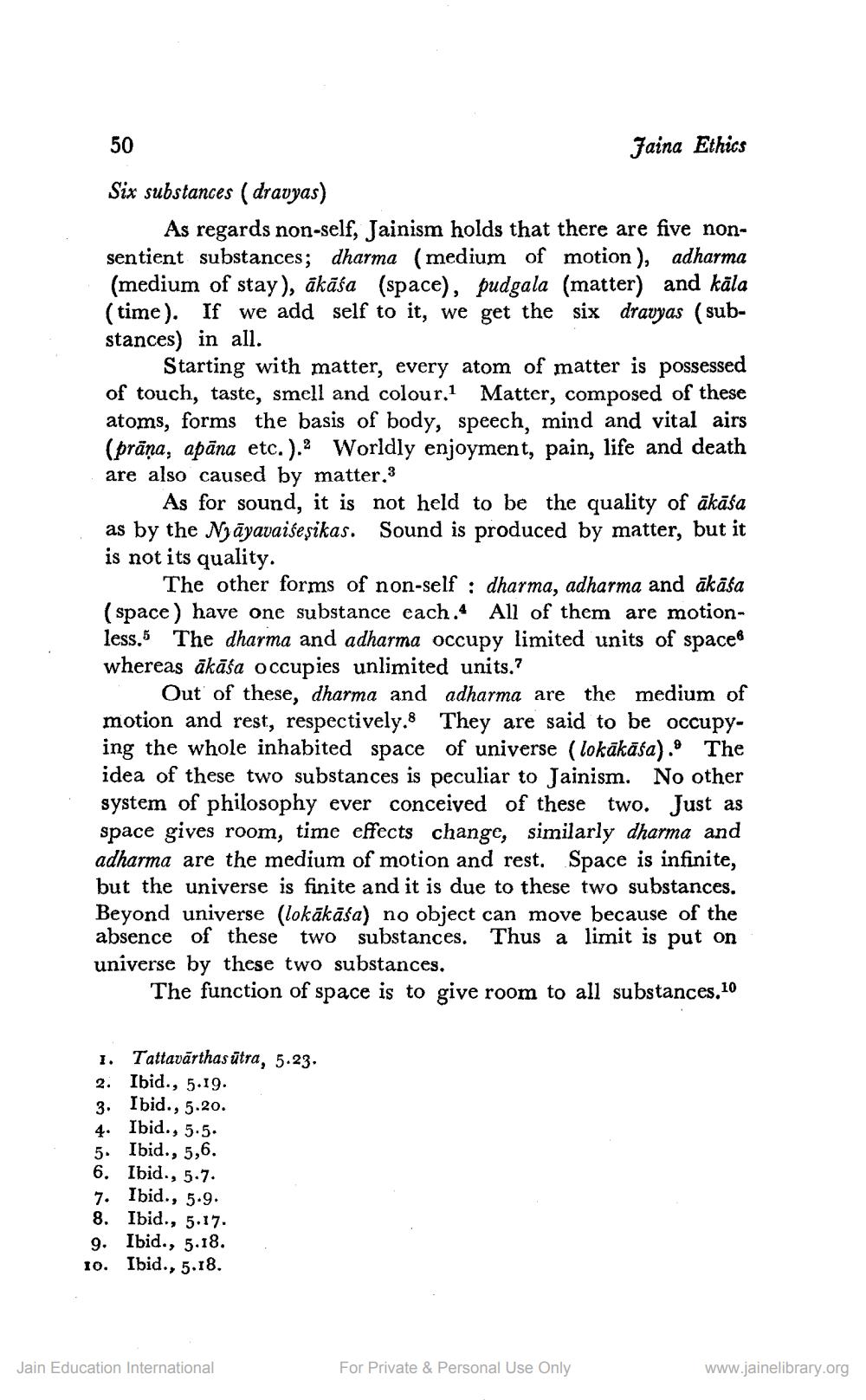________________
50
Faina Ethics Six substances ( dravyas)
As regards non-self, Jainism holds that there are five nonsentient substances; dharma (medium of motion ), adharma (medium of stay), ākāśa (space), pudgala (matter) and kāla (time). If we add self to it, we get the six dravyas (substances) in all.
Starting with matter, every atom of matter is possessed of touch, taste, smell and colour.1 Matter, composed of these atoms, forms the basis of body, speech, mind and vital airs (prāņa, apāna etc.).2 Worldly enjoyment, pain, life and death are also caused by matter. 3
As for sound, it is not held to be the quality of ākāśa as by the Nyāyavaiseșikas. Sound is produced by matter, but it is not its quality.
The other forms of non-self : dharma, adharma and ākāśa (space) have one substance each. All of them are motionless. The dharma and adharma occupy limited units of space whereas ākāśa occupies unlimited units.?
Out of these, dharma and adharma are the medium of motion and rest, respectively. They are said to be occupying the whole inhabited space of universe (lokākāša).' The idea of these two substances is peculiar to Jainism. No other system of philosophy ever conceived of these two. Just as space gives room, time effects change, similarly dharma and adharma are the medium of motion and rest. Space is infinite, but the universe is finite and it is due to these two substances. Beyond universe (lokākāśa) no object can move because of the absence of these two substances. Thus a limit is put on universe by these two substances.
The function of space is to give room to all substances.10
1. Tattavārthasūtra, 5.23, 2. Ibid., 5.19. 3. Ibid., 5.20. 4. Ibid., 5.5. 5. Ibid., 5,6. 6. Ibid., 5.7. 7. Ibid., 5.9. 8. Ibid., 5.17. 9. Ibid., 5.18. 10. Ibid., 5.18.
Jain Education International
For Private & Personal Use Only
www.jainelibrary.org




